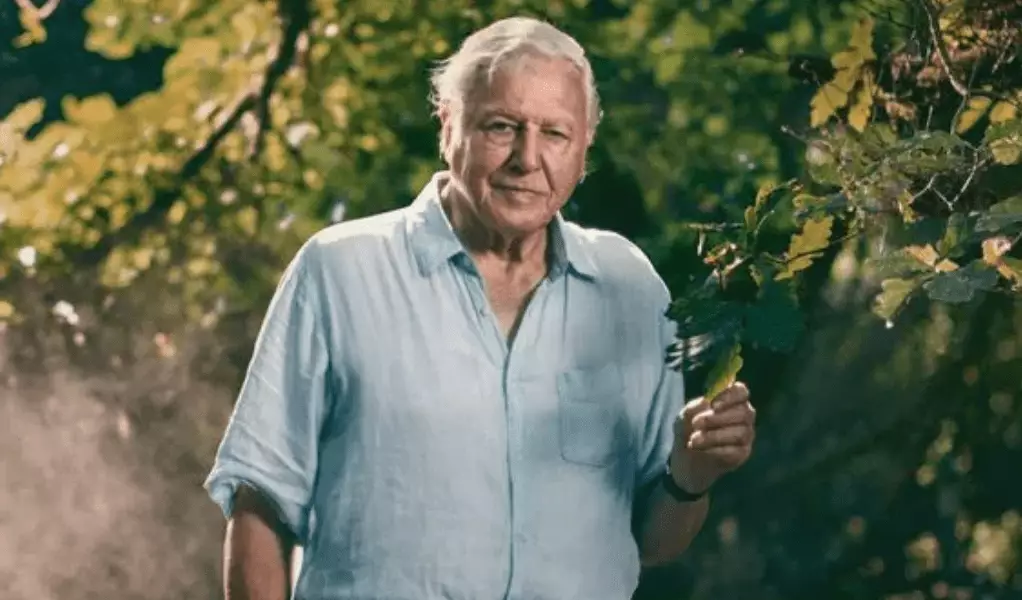As technology continues to evolve, so too do the ethical dilemmas associated with its use. The recent controversy surrounding the unauthorized cloning of the voice of David Attenborough, the esteemed natural history presenter, underscores the urgent need to reassess our standards regarding artificial intelligence, particularly in relation to voice replication. The crux of the issue lies not just in technological innovation, but in the ethical ramifications that arise when artifice intrudes upon personal identity.
The Incident: Unauthorized Voice Cloning
The controversy began when the BBC informed Attenborough that his voice had been cloned by an AI application without his consent. In a segment aired by BBC News promoting his new series, “Asia,” viewers were presented with two audio clips: one featuring Attenborough’s genuine voice and another generated by AI. Distressingly, the AI-generated clip closely mimicked Attenborough’s tone, inflection, and overall delivery, blurring the lines between authentic artistic expression and artificial reproduction. This alarming incident illustrates the exciting yet risky potential of artificial intelligence in creative fields and highlights the need for vigilant oversight over its applications.
Attenborough expressed his deep concerns, stating that he is “profoundly disturbed” by the use of his likeness to express opinions and sentiments he does not endorse. This reaction is a testament to the emotional labor that public figures, entertainers, and artists invest in their work. The appropriation of an artist’s identity without consent raises not only questions of copyright but also complicates the very essence of personal expression that these individuals strive to maintain.
The proliferation of AI technologies has instigated a new frontier of challenges related to identity theft and public persona misappropriation. In this case, the cloned voice is being used in various contexts—most notably in news reports covering contentious global issues like the Ukraine-Russia conflict and American political developments. This behavior raises ethical questions about the responsibility of content creators and platforms in ensuring the integrity of the material they produce and share.
Cloning a public figure’s voice can create substantial confusion for the audience, leading them to mistakenly attribute viewpoints and statements not originally expressed by that individual. In the age of digital information, such misattributions possess the potential to distort narratives, further complicating an already fragmented media landscape. This recent event acts as a stark reminder to both consumers and creators alike: digital artifacts, whether audio or video, are not always what they seem.
As cases of likeness cloning become more prevalent, legislative measures are being proposed to offer protections for individuals, particularly public figures like Attenborough. In the United States, the introduction of the No Fakes Act marks an important step in addressing the legal void surrounding the unauthorized use of likenesses and identities. This bipartisan legislation aims to provide a framework to hold creators of cloned likenesses accountable for their actions, reinforcing the notion that artistic integrity and personal identity should be safeguarded against digital exploitation.
This legislative movement emerged within a broader cultural discourse around artificial intelligence and its implications in creative industries. The recent labor strikes among writers and actors echoed similar sentiments, signaling a collective concern regarding the exploitation of talent through AI technologies. Public figures increasingly recognize that their voices and images are at risk of being commodified, prompting a reevaluation of existing intellectual property rights.
As we stand at the intersection of technology and ethics, the case of David Attenborough serves as a pivotal moment. It highlights the necessity of engaging in meaningful dialogue about the implications of AI and its impact on our understanding of identity, artistry, and originality. While the potential of AI-driven technologies is indeed promising, they must not overshadow the fundamental principles of respect and consent that govern all forms of artistic expression.
It is crucial to assert that the advancement of technology does not occur in a vacuum; rather, it exists within a societal framework that necessitates ethical scrutiny. The conversations initiated by this controversy could pave the way for more robust legal protections, enabling creators to maintain agency over their work and personal identities. Thus, the ongoing dialogue about responsible AI use will not only sustain the integrity of the creative industries but also ensure that innovation aligns with ethical standards befitting a society that values the uniqueness of individual voices.
